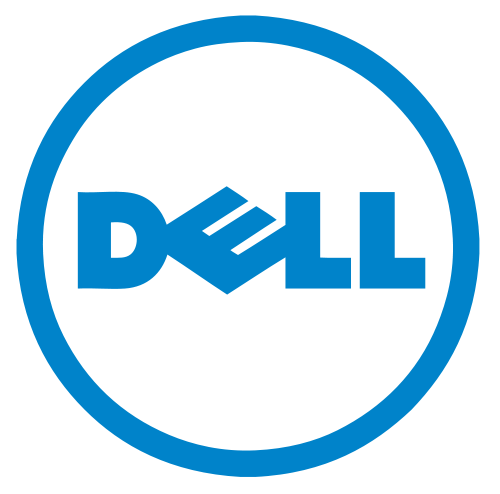OK, so the buyout of Dell Inc. (NASDAQ: DELL) may not be as much hype as the market was originally thinking. Buying a company for more than $20 billion is no easy task and even in the world of the billionaire boys club of private equity a deal of such a size would require a “club deal” structure. Now that the reports that have been out a day after the news first broke, the deal is supposed to have Silver Lake Partners leading the deal.
Reuters reported today that financial giants to the likes of Credit Suisse (NYSE: CS), Bank of America Corporation (NYSE: BAC) via Merrill Lynch, Barclays PLC (NYSE: BCS), and even Royal Bank of Canada (NYSE: RY) are said to be lining up the financing. J.P. Morgan Chase & Co. (NYSE: JPM) is also said to be advising Dell on the deal.
Our question is at what price a deal can really get done here. Michael Dell owns roughly 14% of the company’s outstanding shares. He can likely round up funds from other billionaires in America if wanted to. But again, at what price is a deal doable?
Dell is up another 6% on Tuesday at $13.06, and that is on top of 13% gains to $12.29 on Monday. Dell’s 52-week trading range is $8.69 to $18.36 and its new market cap is $22.8 billion. With this deal leaking, the price of poker has gone up. We do not think that Michael Dell would have to go pay above $20.00 per share just because he would be making all buyers whole, nor would Silver Lake. At $20.00 per share, Dell would be valued at almost 12-times a blended forward earnings estimate. Apple Inc. (NASDAQ: AAPL) would be cheaper at that point and Hewlett-Packard Co. (NYSE: HPQ) is already much cheaper on forward earnings than Dell is.
We are not just looking for a nice round number, but $15.00 per share is what we think a buyer might be willing to offer with the hope that the majority of shareholders will vote in favor of the deal. Whatever the price happens to be, the prospective buyer knows that Dell as the company, Michael Dell himself as the largest shareholder, and the acquirer will all likely be sued in class action suits. That is just the way things go.
Dell last traded above $15 before last summer. This price values Dell at just under 9-times a blended forward earnings. We would note that 7-times earnings comes to just under $12 and 8-times earnings would be about $13.60. Another note of caution before shareholders turn too optimistic about private equity buyout rumors: with shares around $13 now, the stock is already $1 higher than the consensus price target of $11.96 from Thomson Reuters. A boutique research firm named Monnes Crespi Hardt also downgraded Dell shares today to Hold from Buy. We saw that Topeka Capital put a $15 to $18 valuation based upon an ex-cash earnings analysis.
As far as that balance sheet is concerned, here are some of the basics. Dell’s cash is not all domiciled in the U.S. and that would change the numbers up, but here are the basics: Dell has over $15 billion of short-term and long-term liquidity before getting into any receivables, inventory, and other current assets. The company also has some $5.3 billion in long-term debt and it lists another amount of close to $4.2 billion in “other” liabilities and almost $4 billion in deferred long-term liability charges. Any buyer could keep debt on the balance sheet, but leveraging this deal up too much takes away all of the “value” scenario.
Would a private equity buyer try to use the old leverage and dividend model? Not likely. To borrow $10 billion to add on that much more in debt to pay out a big dividend would make the math unattractive for buying Dell. If private equity buyers want to buy the company, chances are high that they also ultimately want to sell the company for a profit down the road. A future IPO without Michael Dell at the helm might even be in order. Would you as an investor buy up a highly leveraged PC maker competing in war of relevance with Hewlett-Packard Co. (NYSE: HPQ) against Apple Inc. (NASDAQ: AAPL), Lenovo, Acer, and others?
One thing that Michael Dell could do is to use the bulk of the available capital to conduct a serious share tender offer to reduce the float substantially. That might drive down the net purchase price and might limit the future price a private equity buyer would have to come up with. That being said, Dell already would cost a few billion more today than it would have on Monday morning. The leaking of discussions only makes the possibility of a deal that much more unlikely from a price perspective alone.
There is another take here besides a $15 per share buyout price. What if Silver Lake and/or others all just become a majority investor in Dell so that along with Michael Dell they can run it as though it is a private company yet still have access to the capital markets like public companies do? If Silver Lake and Michael Dell take the Softbank approach for Sprint Nextel Corporation (NYSE: S) to take majority control of Dell after spending a few billion from the company coffers to repurchase shares and to drive down the float, then shareholders might have a very limited say in a company where they already have very little voice.
Our take is that $15 is the top price a private equity and MBO group will pay based on the valuations of the world today. If Apple Inc. (NASDAQ: AAPL) turns out that its growth is done and that it is just any other tech company now, well that changes things. Silver Lake was founded in 1999 and is a global private investment firm with approximately $14 billion in assets under management.
The one thing we learned back during the silly part of the private equity bubble is that any group of private equity firms can get too ambitious. Groups could overpay to commit untapped capital from excess funds in many of the private equity funds which are still sitting idle. They could pay more than $15 per share for Dell, but we think that is getting very close to the top right now.
100 Million Americans Are Missing This Crucial Retirement Tool
The thought of burdening your family with a financial disaster is most Americans’ nightmare. However, recent studies show that over 100 million Americans still don’t have proper life insurance in the event they pass away.
Life insurance can bring peace of mind – ensuring your loved ones are safeguarded against unforeseen expenses and debts. With premiums often lower than expected and a variety of plans tailored to different life stages and health conditions, securing a policy is more accessible than ever.
A quick, no-obligation quote can provide valuable insight into what’s available and what might best suit your family’s needs. Life insurance is a simple step you can take today to help secure peace of mind for your loved ones tomorrow.
Click here to learn how to get a quote in just a few minutes.
Thank you for reading! Have some feedback for us?
Contact the 24/7 Wall St. editorial team.



